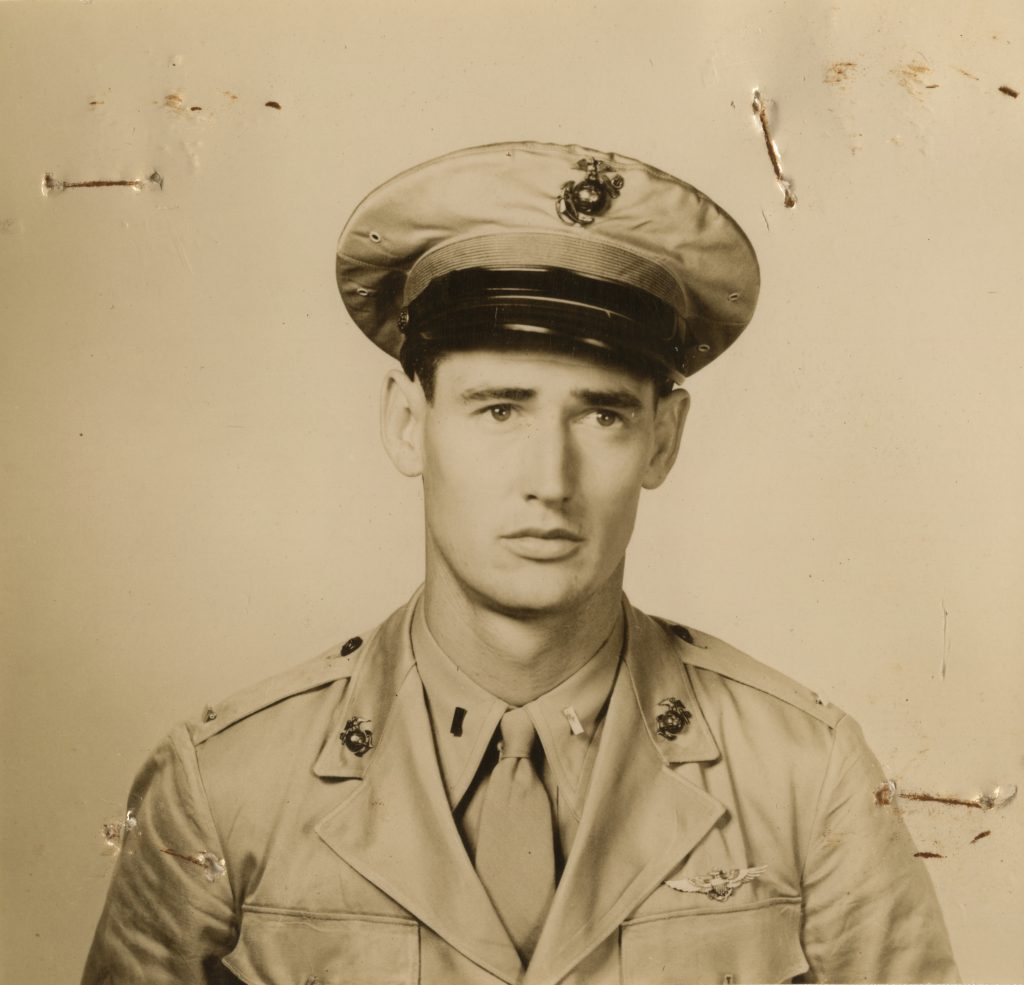The national celebration of Ted Williams’s birth a century ago proves that Americans long for their old-fashioned baseball heroes. Though the hitter’s .406 mark may never be eclipsed, some of the least-known periods of Williams’s military training reveal the core values and work ethic of the greatest hitter who ever lived.
During the Second World War hundreds of major-league baseball players paused their athletic careers to serve in the military. In today’s world, imagine if Mookie Betts, J.D. Martinez, and most of the Red Sox joined the service. By their side would be managers, coaches and staff who run Fenway Park, from ticket takers to concessionaires.
In 1942, Williams enlisted in the V-5 Naval Aviation Cadet Training Program. His goal was to join the ranks of America’s top gun pilots. When he left baseball at the end of the season, Williams channeled his passion into aviation and never looked back.
The greatest hitter who ever lived wrestled with a volcanic temper. Williams used epically profane language but he had a big heart. He was always worried about the kids who lacked the fiery passion that drove him.
By the time Williams celebrated his 25th birthday on August 30, 1943, he had just graduated from the toughest physical training program in the world for pilots. This 3 month course took place at the U.S. Navy Pre-Flight School in Chapel Hill, North Carolina. During this time Williams was grateful to the Navy for protecting him from reporters who scrutinized his every move. Within the confines of this base, officers and fellow cadets gave Williams a nickname that stuck with him throughout the war – “Regular Joe.”
As soon as he joined the Navy, Baseball’s most famous Regular Joe disappeared into a mix of aviation cadets. The former D-student at Hoover High studied constantly, mastering difficult courses like aerodynamics and physics. He hiked hundreds of miles through the woods in survival training. In turn, he shaved ten pounds off his string-bean frame at the North Carolina camp. Not much of a swimmer before the Navy, Williams jumped into pools lit with gasoline fires and gained the endurance to swim a mile. The hitter played on the Navy baseball team and missed dinner to take extra batting practice, swinging in the dark until his palms bled. Unbeknownst to his fans, Williams also made a name for himself as a boxer. He even gained the attention of a pre-flight coach who thought he had the potential to fight at Madison Square Garden.
Williams paid attention to the little things that say “I care,” such as making his bed and polishing his boots. He mopped floors without complaint, and never received a demerit for foul language or disrespect.
Rare image of a hand-drawn sketch by Ted Williams during aviation training at Bunker Hill Naval Air Station. Circa 1943. Composite image of Williams also provided by the National Archives and Records Administration, (NARA) St. Louis.
After a short hiatus Williams shipped into Bunker Hill Naval Air Station on September 10, 1943. Nicknamed the USS Cornfield, Williams perfected his takeoffs and landings at this rural Indiana base, becoming one with the plane. Baseball’s Regular Joe finished his course work two weeks early, graduating at the top of his class. When Williams left for Pensacola, Florida, on December 6 to earn his golden wings he was one of the most respected men on base.
Right Stuff Values
The Splendid Splinter was unapologetic about the raw ambition forged as a lonely kid on San Diego’s sandlots. Passion drove his desire for perfection in every pursuit—from hitting to fly casting to his proudest pursuit as a Marine fighter pilot, where he served as John Glenn’s wingman in Korea.
Glenn trained in the same aviation program as Williams, becoming a Navy V-5 recruiter in 1942. When Esquire magazine shadowed Lt. Glenn on a recruiting tour, the reporter mentioned the right “stuff” traits that the flight board looked for—intangible, intrinsically rooted values that make a naval aviator. The words fearless, humble, loyal, and respectful come to mind.
Candidates selected for the program were modest, squared-away guys who never bragged about their achievements and were not afraid to fail. The aspiring young fighter pilots like Williams also had passion and shared a deep respect for country—core values that ultimately won the war.
Anne R. Keene is the author of The Cloudbuster Nine, The Untold Story of Ted Williams and the Baseball Team That Helped Win WWII. Today, fewer than 45 major-league World War II veterans remain with us, representing a generation of players who paused their baseball careers to serve their country.
